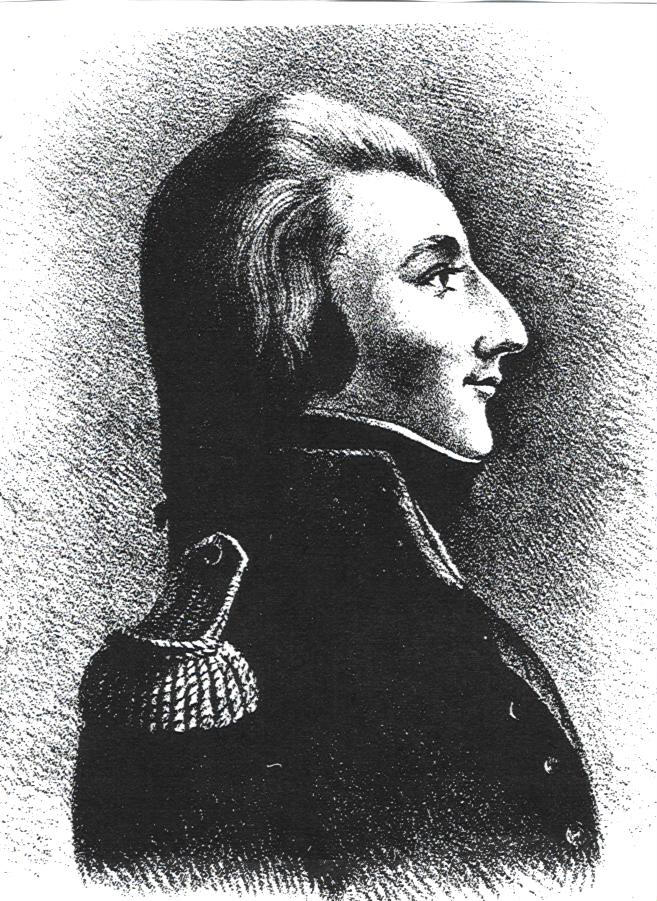Cassandra Murtagh
Staff Writer
This year marks the 250th anniversary of the birth of Theobald Wolfe Tone. It seems fitting at this historical juncture to reflect on the transcendent appeal of one of Ireland’s first republicans.
Wolfe Tone was born on June 20th 1763 into a Church of Ireland household and was raised near Sallins Co. Kildare. He went onto study law in Trinity and exhibited a talent for oration becoming auditor of the Hist in 1785. Wolfe Tone left Trinity and found himself in a similar position to many modern students: jobless and uncertain about the future. Showing no interest in law, Wolfe Tone decided to immigrate to London and soon became a member of the fashionable set; drinking, gambling and engaging in all the debauchery a twenty-something in Georgian London could hope for. In London he distinguished himself as a social commentator and political analyst writing articles and essays for various newspapers. After publishing a pamphlet entitled An Argument on Behalf of Catholics in 1791 he came to the attention of the Catholic Committee in Dublin who offered him the position of assistant secretary for the princely wage of £200 a year.
He returned to Ireland and the transformation of Wolfe Tone into the heroic republican he is known as today began. It is entirely likely at the time of his publication of An Argument on Behalf of Catholics he was not intimately acquainted with any Catholics and perhaps not fully aware of the plight of his Catholic co-patriots. However his involvement with the Catholic Committee rapidly altered that. In October of 1791, Wolfe Tone came together with William Drennan and other notable individuals with the goal of establishing of a group for the propagation of the in-vogue enlightenment ideals: the United Irishmen. This was a rather tumultuous period in European history in which many continental monarch were dethroned, dispossessed and decapitated. As such, the creation of an organisation with liberal constitutional aims was not something the establishment in Westminster was in favour of.
“Wolfe Tone left Trinity and found himself in a similar position to many modern students: jobless and uncertain about the future. Showing no interest in law, Wolfe Tone decided to immigrate to London.”
As the 1790s wore on, with Tone at the helm of this movement, the United Irishmen became more radicalised as it became apparent that their desire for universal suffrage would not be achieved by parliamentary means. Tone was sent to France to rally an army which would rid Ireland of its colonial oppressor. But a violent storm scuppered the first invasion attempt in 1796. Nevertheless, by early 1797 the membership of the United Irishmen was over 300,000 and the atmosphere in the country was ripe for rebellion.
The following year the uprising finally took place and Wolfe Tone travelled yet again from France to Ireland, landing at Lough Swilly. However, before the 3,000 Frenchmen Tone had sailed with had a chance to properly engage the English army, the uprising was quashed and Tone, spurning a chance to escape, was taken prisoner. At his court martial Tone openly revealed his hostility towards England and remained steadfast in his determination to secure separation between the two countries. When his death sentence was handed down, Tone did not break down and cry for mercy but instead demanded to be treated with the respect his status as an adjunct general in the French army afforded him and to be executed by firing squad. This request was denied and Tone took matters into his own hands. He failed, however, in his attempt to swiftly end his own life and suffered on for a number of days before succumbing to his injuries on 19 November 1798.
His death and that of his fellow United Irishmen were not in vain; spurring on generation after generation of republicans. Finally, in 1949, Wolfe Tone’s desire “to unite Protestant, Catholic and Dissenter under the common name of Irishmen in order break the connection with England” was achieved. Theobald Wolfe Tone’s connection to Trinity and republicanism is remembered in Trinity to this day where the Fianna Fáil campus cumann is his proud namesake.






